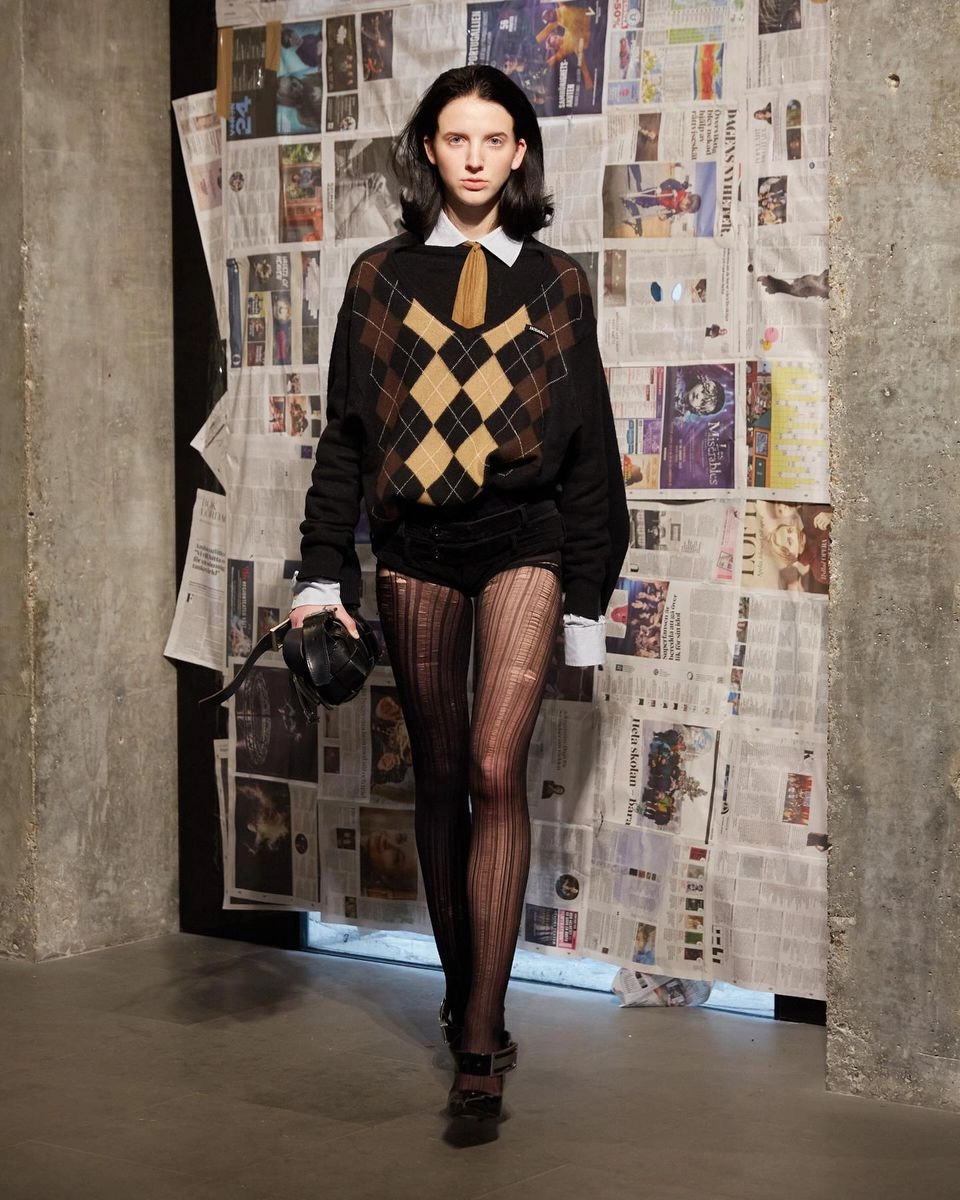Gunilla Bergström: With the honesty of a child

As Gunilla Bergström turns 75 and the character that made her famous, Alfons Åberg, turns 45, Scan Magazine speaks to the Swedish children’s book author about success, struggle and refusing to fake it.
“People were bewildered,” says Gunilla Bergström about her first Alfons Åberg (or Alfie Atkins, as he is called in English) book, first published in 1972. The book was considered controversial, and an eye-opener, due to the fact that the only parental presence in the book was that of Alfons’ father. “I was surprised. I didn’t know much about children’s books anyway; I was pregnant with my first child at the time,” she says plainly. Her own father, she explains, was so effortless in his way with kids. A good father figure who read bedtime stories was nothing strange to her. “With time, I realised how remarkable it was to people that Alfons’ mother wasn’t present, and then there was something enjoyable about continuing that. How much of the family do you have to account for, cousins and aunties as well? It’s enough with one grown-up to explore that confrontation between child and adult.”
Bergström had been an enthusiastic drawer as a child but gave up in her twenties as she felt that it was not a proper job. Instead, she studied journalism at JMG in Gothenburg, graduated in 1966 and went on to work as a reporter at the Swedish national daily Aftonbladet . Publishing a book was not a big deal to her. “I had things published all the time and was a seasoned writer, so I could just plough on and write. Some people talk about the first book as holy, but I didn’t feel that at all,” she says. “But then the publisher suggested that I illustrate the book too, and that was exciting! The chance to spend my time drawing, that’s what really lit that spark in me.”
Her first book, Mias pappa flyttar ( Mia’s dad moves out ), about a girl whose parents separate, was published in 1971; but when Bergström pitched the first Alfons book, it was refused. She laughs. “I was walking around book shops with a ruler trying to figure out how big a picture book should be, but what did I know? They refused it and sent me home to make it larger. I was delighted – I was getting more space for my images, more creative freedom; I was going to spend the rest of my life drawing!” She describes the beginning of her author-illustrator career with a mixture of glee and constraint, expressing gratitude to her employer for allowing her to take time off when the first book was out and yet another short sabbatical for book number two.
‘No one is born evil’
For a best-selling author, Bergström appears to have very little time for other people’s opinions and expectations. “I was thorough – I always have been – and I only ever wrote based on genuine lust. I’d never be able to write a book on assignment; it’s about being honest with myself,” the author reflects. Being honest meant going against the tide, not only in leaving out a mother figure from a 1970s children’s book; she also deliberately made Alfons ugly. “He absolutely couldn’t be cute,” she says candidly. “There were so many cute girls with bows, and there were mischievous boys with dead rats in their pockets. I didn’t want any of that, I wanted a real kid. But I gave him his tiny hairs to add something a little bit soft to that stout face.” And Alfons’ father? “He’s not exactly Hee-Man, quite ugly – or trivial.”
That she finds it easier to relate to children than she does to many adults is quite clear. “My passion for writing children’s books is probably linked to the fact that I’m quite childish. I also have very vivid memories of what it’s like to be teased or feel guilty,” she says and suggests that we should give children more credit than we do. “They’re not stupid – they get that ‘oh, there’s a nail missing’ and they’ll go get a nail. I don’t think we should make a big hullabaloo of parenting; it’s a lot about just watching and noticing when a kid’s spark is lit, to be attentive. All that pressure of ballet dancing and ice hockey, I don’t think that’s very important.” That innocence of children is a recurring topic, if mostly implicitly. Yet Bergström’s view is far from rose-tinted: she believes that we are all born neither good nor bad, and situations and surroundings shape us. “It’s a starting point even my nineyear-old niece is on board with: no one is born evil, but we all have the capacity to do good and bad things. Imagine if you could say to all the unhappy people, all those with broken hearts and struggling with hardship, that it’s not always been like that – you don’t need to get stuck in a terrible situation. It’s the outside world that twists things and makes us sick.” She pauses. “With children’s books, I feel free to express myself with words and images. With adults, it’s too late – it’s pointless as we’re already ruined.”
Surreal success
What finally gave Bergström the courage to leave her job was a five-year author’s stipend from the Swedish Writers’ Union in 1976, providing a basic annual salary. “It’s not that I was desperate to move on,” she says. “I loved being a reporter, but when I was juggling the two jobs, being both a writer and an illustrator, and being up to my eyes as a mother of young children – I guess with the stipend I knew it was time.” Yet the reality of life as a salaried author was far from glamorous. Bergström had two children, including a mentally disabled daughter, and the administrative work involved with keeping track of tax declarations and different editions and royalties started to become burdensome. “Eventually I set up a limited company. I did it to cope,” she says. “My books have been translated to 35 languages now – it’s unreal. But I’ve had private problems all along: my first husband was an alcoholic, then I had my daughter, went through a divorce. My second husband had cancer. The success has been completely surreal as I’ve had other things to think about. My heart’s been with the worries at home.”
‘Kärt barn har många namn’ is a Swedish proverb meaning ‘a beloved child has many names’, which is certainly true about Alfons. So far, across the many translations, the character has 20-odd names, including Willi Wiberg in German, Guuled in Somali and Burhan in Arabic. “Alfons was the first ever Swedish book to be translated into Arabic,” says the author. “It was in 1985 and the royal family was doing a state visit to Jordan, and the most Swedish thing they could think of as a gift was one of my books translated to Arabic. I had a good laugh about that!”
This year, Alfons turns 45 and the character has inspired everything from cartoons to theatre shows and doctoral theses. When we speak to Bergström, she has just received the news that a Chinese publisher has bought every single Alfons book ever written – 21 in addition to the five they already had – and she is thrilled. “I find it very fascinating. Here in the west, we don’t know all that much about China and what life is like for Chinese families,” she says. “What’s important to children in China today, and what will they pick up on in the books about Alfons? As an author, I’m genuinely curious about that and would love to know more about the world these books will end up in.”
Next, she is working on a solo exhibition, which will showcase her unique collage-style illustrations. “I was one of the first to use this technique. It meant that I could be a realist but still trip out completely with helicopters in the middle of the jungle,” she says, describing the laborious work of cutting and gluing curtain snippets, wallpaper cuttings, yarn and everything in between. “It’s funny, back then you’d cut and glue and use old-fashioned printing techniques, and you’d get the slight shadow around the edges. These days, people fake it and add that shadow digitally to make it look as though something’s been cut in – I call it double fake.”
Excitement alongside prudence, childlike wonder paired with wisdom – there is certainly a duality to the Swedish author, who has talked openly about a life with bipolar disorder. Yet she is a firm realist and resolutely protests the notion of her artistic work as a place of escapism during the most difficult years. “I don’t want to escape, I hate that. It should be real. A place of reality as refuge, perhaps – a place where you sit and feel good, a part of myself.” There is something about those genuine shadows – a commitment to seeing things for what they are, both the keepsakes you choose to cut out and the little flaws that you learn to love. As a writer of fiction, she has reached unimaginable success, but Gunilla Bergström is nothing but real.
TEXT: LINNEA DUNNE
Subscribe to Our Newsletter
Receive our monthly newsletter by email





